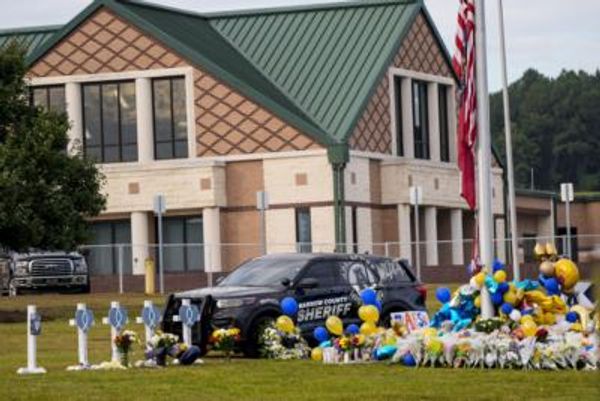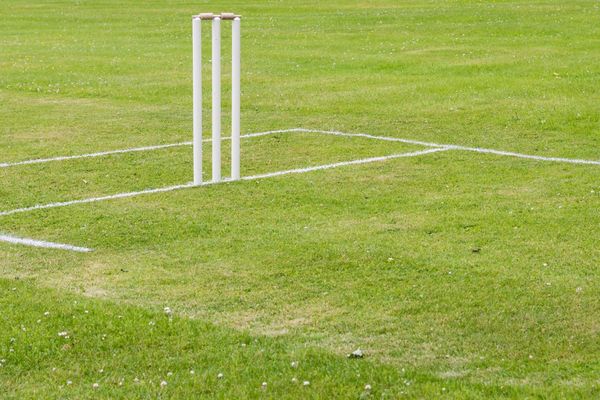The name Kingan has been woven into the industrial history of New Abbey for generations.
Even to this day James Kingan and Sons Ltd employs around 30 people at its Townhead sawmill.
The firm was previously a coal merchant and milled grains and cake for animal feed at nearby Lochhill which, today, along with Overton, Criffel House and Tibbers near Thornhill comprise Kingan Farms.
Now, aged 93, Ian Kingan was a partner in the business and ran the sawmill, helping ensure his family’s long legacy of enterprise and adaptability continued.
Father of four Ian, who has eight grandchildren and five great-grandchildren “away in the Borders at Oxnam”, retains a pin-sharp memory and can trace family history over two centuries.
“My great-great grandfather John Kingan and his family came to Sandyford, one of the holdings on Shambellie Estate, from Kildrain at Kirkgunzeon around 1830,” Ian recounted.
“They arrived not long after the Battle of Waterloo in 1815, when the laird of Shambellie William Stewart had a call on a lot of people.
“Men were sent away to fight and so many were killed that the residents carted stone over the fields to build the Waterloo Monument on a hill above New Abbey.
“Local folk still know it as the monument hill.”
John Kingan’s son, also John, became tenant of New Abbey sawmill in 1861.
The year before, his laird William Stewart completed the imposing mansion, Shambellie House.
With a lease in his pocket John built up the timber business while his enterprising wife Isabella ran a general store in the village.
Keen to see her sons prosper, Isabella apprenticed them out to different trades in Dumfries to gain skills and experience.
“Two sons ended up in America and two in New Zealand where dozens of Kingans and their relations still live all over South Island,” said Ian.
“The Scottish and New Zealand branches of the family still keep in
touch.
“There were exchange visits and the New Zealanders stayed in New Abbey when they came over.
“While they were here they would visit farms and viewed stock.
“One New Zealand boy sent over to us we had working as a mechanic at Peacock’s hauliers in Dumfries.
“I also sent my son John over there because he wanted to farm.
“He learned many things and it did him the world of good.
“These days he has his own farm at Laneside at Troqueer.”
Ian’s cousin Jim Kingan, who ran the farming business at Lochhill, even named his son Russell after a Kiwi relative.
However, the name was passed on under the shadow of tragedy.
“Russell Kingan was a fighter pilot during the war and he visited us while on leave,” Ian recounted.
“I would be about 15 and the first we knew of Russell was when he knocked on the door at Lochhill!
“Russell got through the war, went back to New Zealand and started a business spraying crops with helicopters.
“One day he borrowed a plane with two friends and to fly to North Island.
“But on the way the plane crashed and they were all killed.
“Imagine that - Russell survived the whole war as a fighter pilot and died on a plane trip with friends.
“His son David Kingan of Akoroa still calls me uncle,” Ian added.
“And in 1984 the New Zealanders had a reunion to celebrate 100 years since the first Kingans arrived from Scotland.
“There were so many Kingans that they had to hire a church.
“John had his 21st when he was out there for the occasion.”
Ian was educated at New Abbey Primary School, Dumfries Academy and Strathallan.
And it was at the Perthshire school as a 14 year-old that Ian heard aircraft which pilot Russell knew only too well.
“I remember us being down at the basement swimming pool when the German planes were flying over to bomb Clydebank,” Ian recalled.
“They reckoned the guns that had been firing at the German aircraft were glowing red hot.
“We were pretty well fed but then a cargo of rice arrived from somewhere and we got that until it was sticking out of our ears.
“At New Abbey Mr Morrison was the schoolmaster.
“He went out to Australia after the war and became a postmaster out there.
“We also had Miss Yuill and Miss Dougan, who was a redhead.
“She was very keen on sports and when it came to eastern Stewartry division competitions New Abbey would win.”
In the aftermath of war Ian was called up to serve in the Royal Army Medical Corps in Germany.
During his posting tensions between the Soviet Union and the Western powers escalated.
The Soviets closed all land routes into eastern Germany and West Berlin had to be supplied by air.
“I was sent out on December 5, 1946, and spent quite a time with the Army of Occupation in Braunschweig (Brunswick),” Ian said.
“Breaking the Berlin Blockade was called Operation Plainfare and we sprayed the billets of displaced persons with DDT.
“We were put in tents at Wuntsdorf airport which were standing in water half the time.
“Conditions were awful and we had to put our bedding on palliasses (bags filled with straw) to try and keep dry.
“We also had to delouse a lot of displaced persons from Eastern Europe with special powder.
“The Germans had been using them as forced labour in their factories.
“These poor folk were in a terrible condition.”
Back in Galloway the war also left a legacy of human displacement.
“We had two Poles and six German PoWs working at Lochhill,” Ian said.
“Neither nationality would sit together and it was the same in the fields but they were all good workers.
“When I was in charge of them shawing turnips I would be in the middle row separating the Poles on one side from the Germans on the other!
“The Poles went to Canada because they could get agricultural work there,” Ian added.
“One German PoW finished up at Martingarth Farm outside New Abbey.
“After the war Fritz and his wife would come over for weddings.
“Martingarth folk would do the same and go over for weddings in Germany.
“We had bees in the church one day when Fritz came over.
“He got up in the rafters and smoked them out.
“The German prisoners got on very well with us and you could not fault them really.”
War in Europe meant male labour was short and women had to plug gaps on the home front.
“We had three girls working in the grain store at Lochhill in those days,” said Ian.
“Italians in Scotland were declared enemy aliens and were made to work under supervision.
“So we had an ice cream man from Dumfries working in the sawmill.”
As a child, Ian watched Kingan’s prosper partly through lucrative sea trade with England.
“As a four-year-old I remember the boat we had on the Solway called the General Havelock,” he recounted.
“It took timber from our mill over to Whitehaven in Cumbria and brought back coal mined at the Haig Colliery.
“The ship left from Bog Quay near Ingleston Farm along the coast from New Abbey.
“My grannie Jessie Kingan would make a barrel of oatcakes for the men on the boat who got salmon as well.
“The captain and two crew were well enough fed but they got so much fish they were pig sick of it.
“The salmon was haaf-netted on the Nith at Drumburn, Overton, Corbelly and Kirkconnell Estate.”
Ian added: “Years before that, sets of dressed granite blocks were shipped from Bog Quay to Liverpool.
“It was common knowledge that many of Liverpool’s streets were laid using granite from Criffel.
“The granite was hauled over the fields at Lochhill from the Criffel quarry down to Ingleston.”
Ian took an active part in New Abbey life and followed New Abbey’s football team.
“I have always supported Abbey Vale and still do,” he said.
“They have made a dashed good job of the pitch down there thanks to Andy Brolls the chairman.”
Ian also joined the dramatic and badminton clubs – and the pipe band.
“I played the pipes but not very well,” said Ian.
“They used to stick corks in my drones so I couldn’t make a sound!”
Meanwhile, the sawmill was thriving using age-old methods.
Clydesdale horses hauled logs from the woods on chains while a huge waterwheel delivered power to circular saws through gear wheels and belts.
But complaints over flooding saw the mill dam and caul removed, which ended the era of water power at Townhead.
Ian had a year-to-year lease with Shambellie and purchased the mill from the estate in 1969.
Early customers included ICI at Cargenbridge, which became a major customer for pallets.
“So we’re still going strong.”







